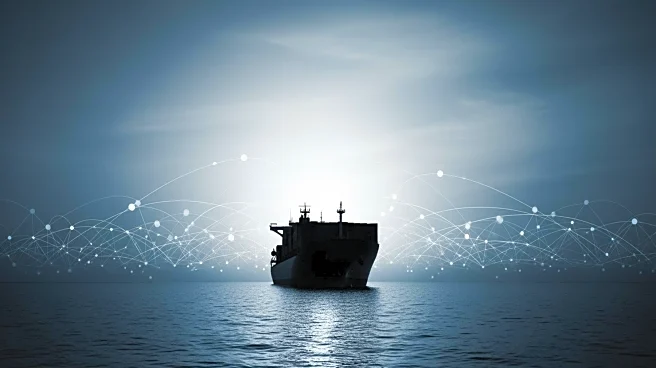What's Happening?
The United States has broadened its sanctions against Iran's energy trade, focusing on international shipping networks and front companies facilitating the transport of Iranian crude oil and petroleum
products. The Trump administration has sanctioned over 170 vessels involved in these activities, aiming to disrupt Iran's ability to finance its armed forces through oil sales. The Treasury's Office of Foreign Assets Control (OFAC) has identified a network of companies and individuals across various countries, including Singapore, the UAE, and Panama, that are allegedly involved in these operations. The State Department has also designated 17 entities linked to the Iranian energy trade, further expanding the scope of the sanctions.
Why It's Important?
These expanded sanctions are significant as they aim to curtail Iran's ability to generate revenue from its oil exports, which are crucial for funding its military operations and rebuilding efforts. By targeting international shipping networks and front companies, the U.S. seeks to isolate Iran economically and politically, potentially impacting global oil markets and trade routes. The sanctions could lead to increased tensions in international relations, particularly with countries involved in the shipping and purchase of Iranian oil, such as Pakistan and Bangladesh. The move underscores the U.S.'s strategic efforts to exert pressure on Iran and limit its influence in the region.
What's Next?
The expanded sanctions are likely to provoke responses from affected countries and companies, potentially leading to diplomatic negotiations or disputes. The U.S. may continue to monitor and enforce these sanctions, possibly expanding them further if deemed necessary. Companies involved in the shipping of Iranian oil may seek alternative routes or methods to circumvent the sanctions, while Iran may explore new partnerships or strategies to sustain its oil exports. The situation could evolve with further geopolitical developments, influencing global energy markets and international relations.









